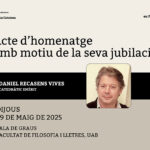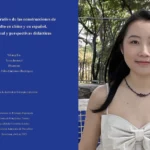25 abril, 2022
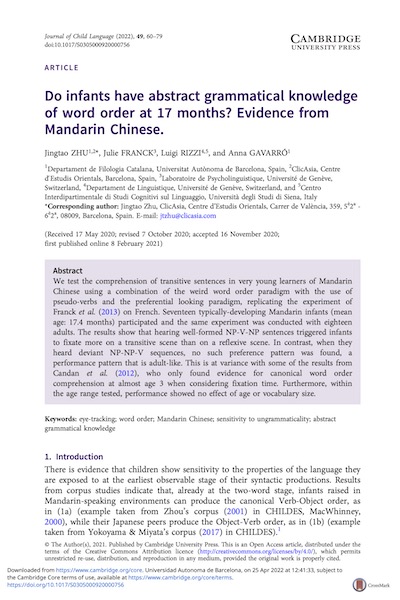
Autors:
Jingtao Zhu, Julie Franck, Luigi Rizzi & Anna Gavarró
Títol:
Do infants have abstract grammatical knowledge of word order at 17 months? Evidence from Mandarin ChineseEditorial: Journal of Child Language, 49(1), 60-79
Text completWe test the comprehension of transitive sentences in very young learners of Mandarin Chinese using a combination of the weird word order paradigm with the use of pseudo-verbs and the preferential looking paradigm, replicating the experiment of Franck et al. (2013) on French. Seventeen typically-developing Mandarin infants (mean age: 17.4 months) participated and the same experiment was conducted with eighteen adults. The results show that hearing well-formed NP-V-NP sentences triggered infants to fixate more on a transitive scene than on a reflexive scene. In contrast, when they heard deviant NP-NP-V sequences, no such preference pattern was found, a performance pattern that is adult-like. This is at variance with some of the results from Candan et al. (2012), who only found evidence for canonical word order comprehension at almost age 3 when considering fixation time. Furthermore, within the age range tested, performance showed no effect of age or vocabulary size.
17 octubre, 2022
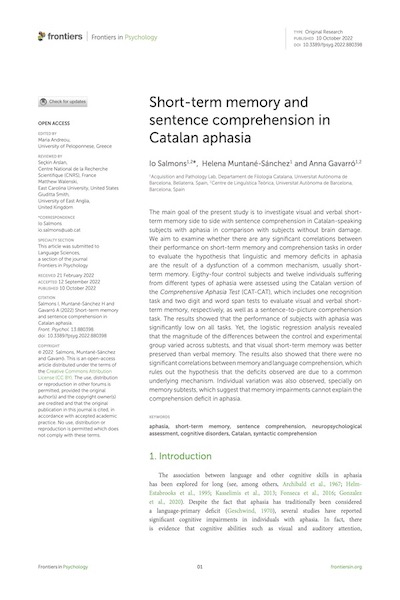
Autors:
Io Salmons, Helena Muntané-Sánchez & Anna Gavarró
Títol:
Short-term memory and sentence comprehension in Catalan aphasiaEditorial: Frontiers in Psychology 13:880398
Data de publicació: Octubre del 2022
Text completThe main goal of the present study is to investigate visual and verbal short-term memory side to side with sentence comprehension in Catalan-speaking subjects with aphasia in comparison with subjects without brain damage. We aim to examine whether there are any significant correlations between their performance on short-term memory and comprehension tasks in order to evaluate the hypothesis that linguistic and memory deficits in aphasia are the result of a dysfunction of a common mechanism, usually short-term memory. Eigthy-four control subjects and twelve individuals suffering from different types of aphasia were assessed using the Catalan version of the Comprehensive Aphasia Test (CAT-CAT), which includes one recognition task and two digit and word span tests to evaluate visual and verbal short-term memory, respectively, as well as a sentence-to-picture comprehension task. The results showed that the performance of subjects with aphasia was significantly low on all tasks. Yet, the logistic regression analysis revealed that the magnitude of the differences between the control and experimental group varied across subtests, and that visual short-term memory was better preserved than verbal memory. The results also showed that there were no significant correlations between memory and language comprehension, which rules out the hypothesis that the deficits observed are due to a common underlying mechanism. Individual variation was also observed, specially on memory subtests, which suggest that memory impairments cannot explain the comprehension deficit in aphasia.
31 desembre, 2022
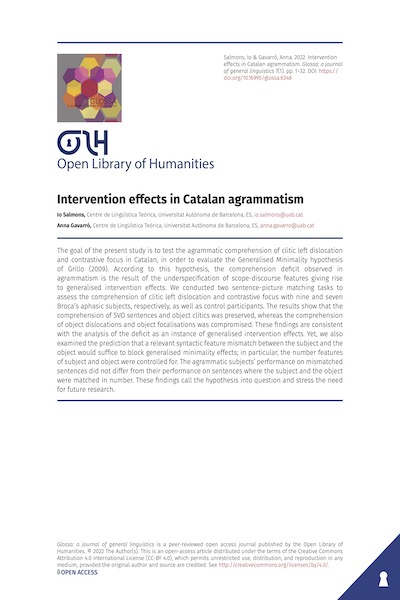
Autors:
Io Salmons & Anna Gavarró
Títol:
Intervention effects in Catalan agrammatismEditorial: Glossa: a journal of general linguistics (Open Library of Humanities)
Data de publicació: 31 de desembre del 2022
Text completThe goal of the present study is to test the agrammatic comprehension of clitic left dislocation and contrastive focus in Catalan, in order to evaluate the Generalised Minimality hypothesis of Grillo (2009). According to this hypothesis, the comprehension deficit observed in agrammatism is the result of the underspecification of scope-discourse features giving rise to generalised intervention effects. We conducted two sentence-picture matching tasks to assess the comprehension of clitic left dislocation and contrastive focus with nine and seven Broca’s aphasic subjects, respectively, as well as control participants. The results show that the comprehension of SVO sentences and object clitics was preserved, whereas the comprehension of object dislocations and object focalisations was compromised. These findings are consistent with the analysis of the deficit as an instance of generalised intervention effects. Yet, we also examined the prediction that a relevant syntactic feature mismatch between the subject and the object would suffice to block generalised minimality effects; in particular, the number features of subject and object were controlled for. The agrammatic subjects’ performance on mismatched sentences did not differ from their performance on sentences where the subject and the object were matched in number. These findings call the hypothesis into question and stress the need for future research.
14 novembre, 2023
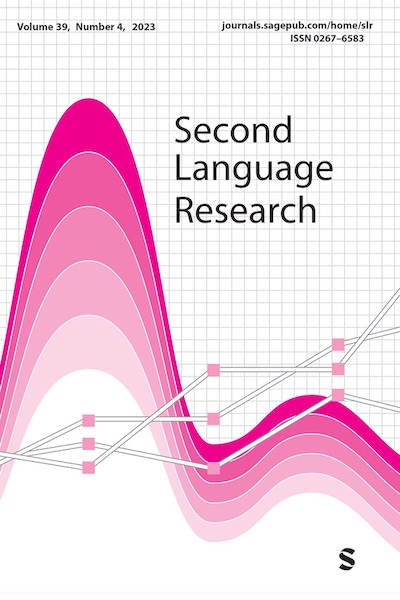
Autors:
Panagiota Margaza & Anna Gavarró
Títol:
Subject position and verb class in L2 Greek and L2 SpanishEditorial: Second Language Research (Sage Journals)
Data de publicació: 24 de maig del 2023
Més informacióGreek and Spanish are two languages that display a similar subject distribution with unergative/unaccusative verbs, but different word orders with focused subjects (SV in Greek and VS in Spanish). Here we consider subject–verb word order in second language (L2) Greek and L2 Spanish in order to test the Interface Hypothesis (IH). To this end, we report a word-order selection task, with a Greek and a Spanish version. The two versions of the task were administered to L2 intermediate and advanced learners and native speakers of Greek and Spanish. The results show that the first language (L1) Spanish learners of Greek approximated more closely native word orders than the L1 Greek learners of Spanish. For the Spanish learners of Greek, the advanced group performed at ceiling, while the intermediate group performed native-like only with unergatives in neutral and direct interrogative subject-focused contexts. On the other hand, for the Greek learners of Spanish, the intermediate group failed in all contexts, while the advanced group performed native-like with unaccusatives in neutral contexts. This asymmetry between L2 Greek and L2 Spanish reveals that the L1–L2 combination determines the learners’ performance, and this is unexpected under the IH.
3 setembre, 2024
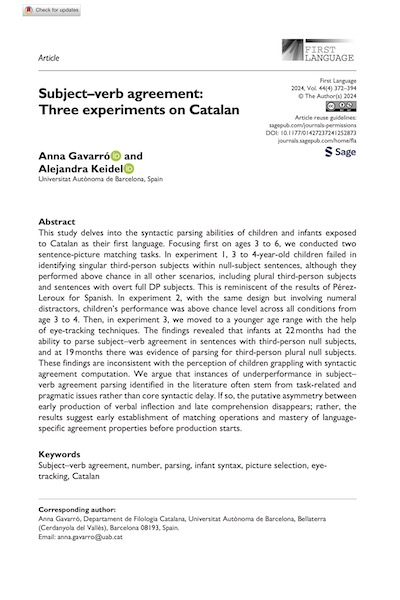
Autors:
Anna Gavarró & Alejandra Keidel
Títol:
Subject-verb agreement: Three experiments on CatalanEditorial: First Language (Sage Journals)
Data de publicació: Agost, 2024
Pàgines: 22 Text completThis study delves into the syntactic parsing abilities of children and infants exposed to Catalan as their first language. Focusing first on ages 3 to 6, we conducted two sentence-picture matching tasks. In experiment 1, 3 to 4-year-old children failed in identifying singular third-person subjects within null-subject sentences, although they performed above chance in all other scenarios, including plural third-person subjects and sentences with overt full DP subjects. This is reminiscent of the results of Pérez-Leroux for Spanish. In experiment 2, with the same design but involving numeral distractors, children’s performance was above chance level across all conditions from age 3 to 4. Then, in experiment 3, we moved to a younger age range with the help of eye-tracking techniques. The findings revealed that infants at 22 months had the ability to parse subject–verb agreement in sentences with third-person null subjects, and at 19 months there was evidence of parsing for third-person plural null subjects. These findings are inconsistent with the perception of children grappling with syntactic agreement computation. We argue that instances of underperformance in subject–verb agreement parsing identified in the literature often stem from task-related and pragmatic issues rather than core syntactic delay. If so, the putative asymmetry between early production of verbal inflection and late comprehension disappears; rather, the results suggest early establishment of matching operations and mastery of language-specific agreement properties before production starts.








